Harbor Market Grand Opening and Ribbon Cutting Celebration!













The Lomita Chamber of Commerce is proud to announce its 2025 Board of Directors and Officers, who will be officially recognized at the Installation & Awards Ceremony on March 6, 2025.
Kim Edwards, HomeStreet Bank (3-year term)
Kevin Gordon, Attorney at Law (3-year term)
Bruno Perron, Still Got It Fitness (3-year term)
Paris Chevalier, South Bay Credit Union (re-elected, 3-year term)
Tabitha Pennington, State Farm Agent (re-elected, 3-year term)
Nayeem Khan, Lomita Mail & Print (appointed to fill a 1-year vacancy)
Jan Vogel, South Bay Workforce Investment Board
Jeff Koven, Koven Video Productions
Chamber Leadership Roles for 2025 – At the January 2025 Board meeting, the following officers were elected:
Chair: Tracy Maestro, California Water Services Company
Chair-Elect: Sharon Shapiro-Fox, Athens Services
Immediate Past-Chair: Jennifer Olvera, Coastal Funeral Center/Green Hills Memorial Park
Secretary: Mary Hornickel, The Wellness Company
Treasurer: Paris Chevalier, South Bay Credit Union
2025 Lomita Chamber of Commerce Board of Directors:
The Chamber remains deeply appreciative of all Board members—past, present, and incoming—whose leadership drives growth and success for our business community.
We invite you to join us on March 6th to welcome the 2025 Board, celebrate our award winners, and support our community.

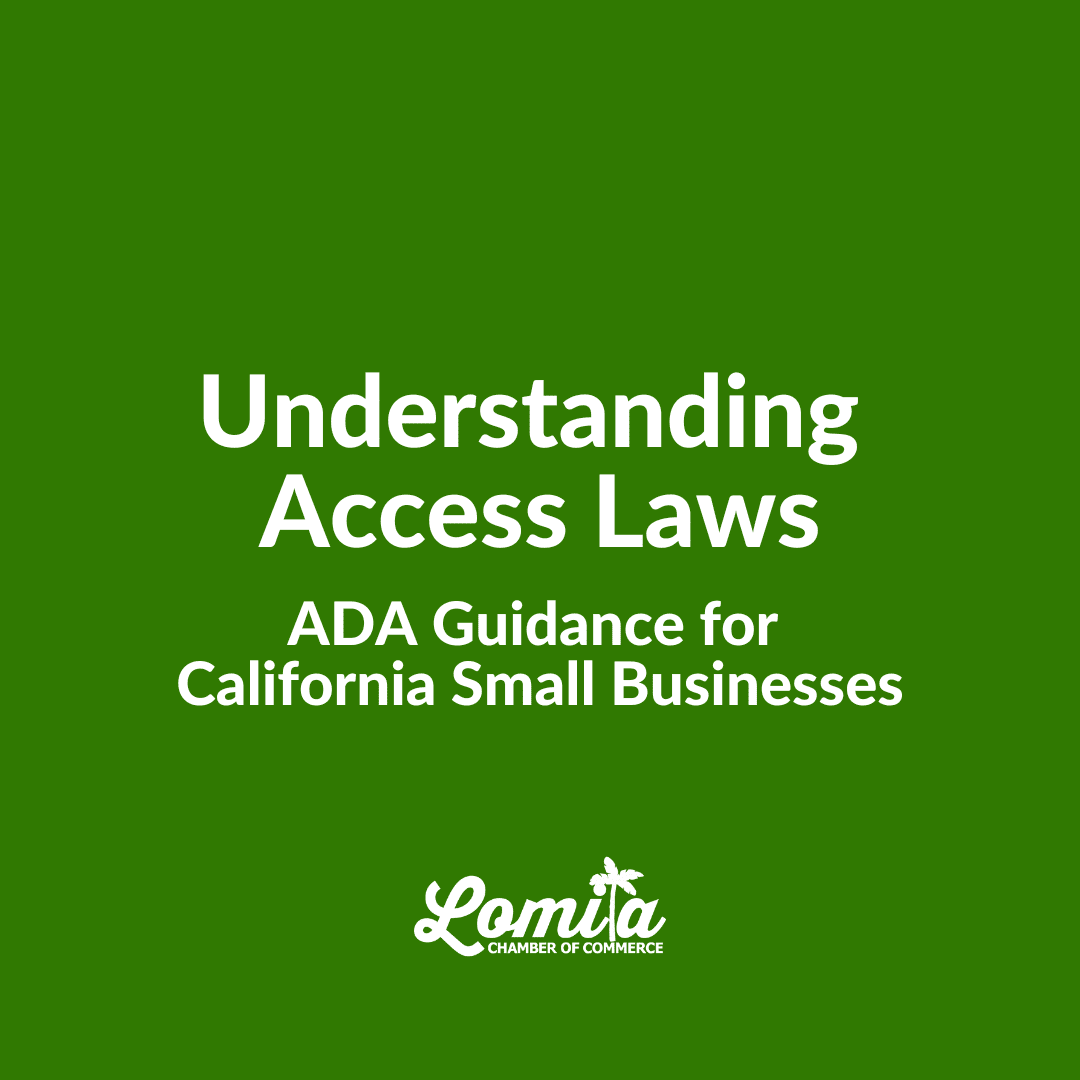
Small businesses in California must comply with various state and federal disability access laws. Non-compliance can result in significant costs from defending and settling lawsuits.
Key Accessibility Laws
Important Reminders
Steps to Reduce Lawsuit Risks
How Can I Fund Access Improvements?
Tax incentives may be available to help mitigate the costs of making accessibility improvements. More information on ADA tax incentives can be found here: https://www.ada.gov/taxcred.htm. Consult your tax advisor for specific advice.
Additional Resources:
Disclaimer:
This information is provided as general guidance and should be reviewed by an expert in the industry. The Lomita Chamber does not endorse or make any guarantees about the suggestions noted here. This information does not replace professional advice from an advisor knowledgeable about disability access requirements. It is not legal advice. For specific concerns, including lawsuits or significant legal issues, you should consult with an attorney who specializes in disability access law.
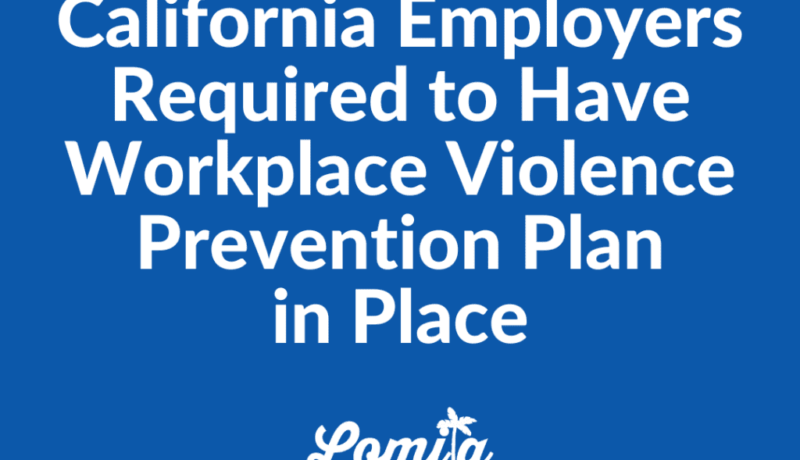
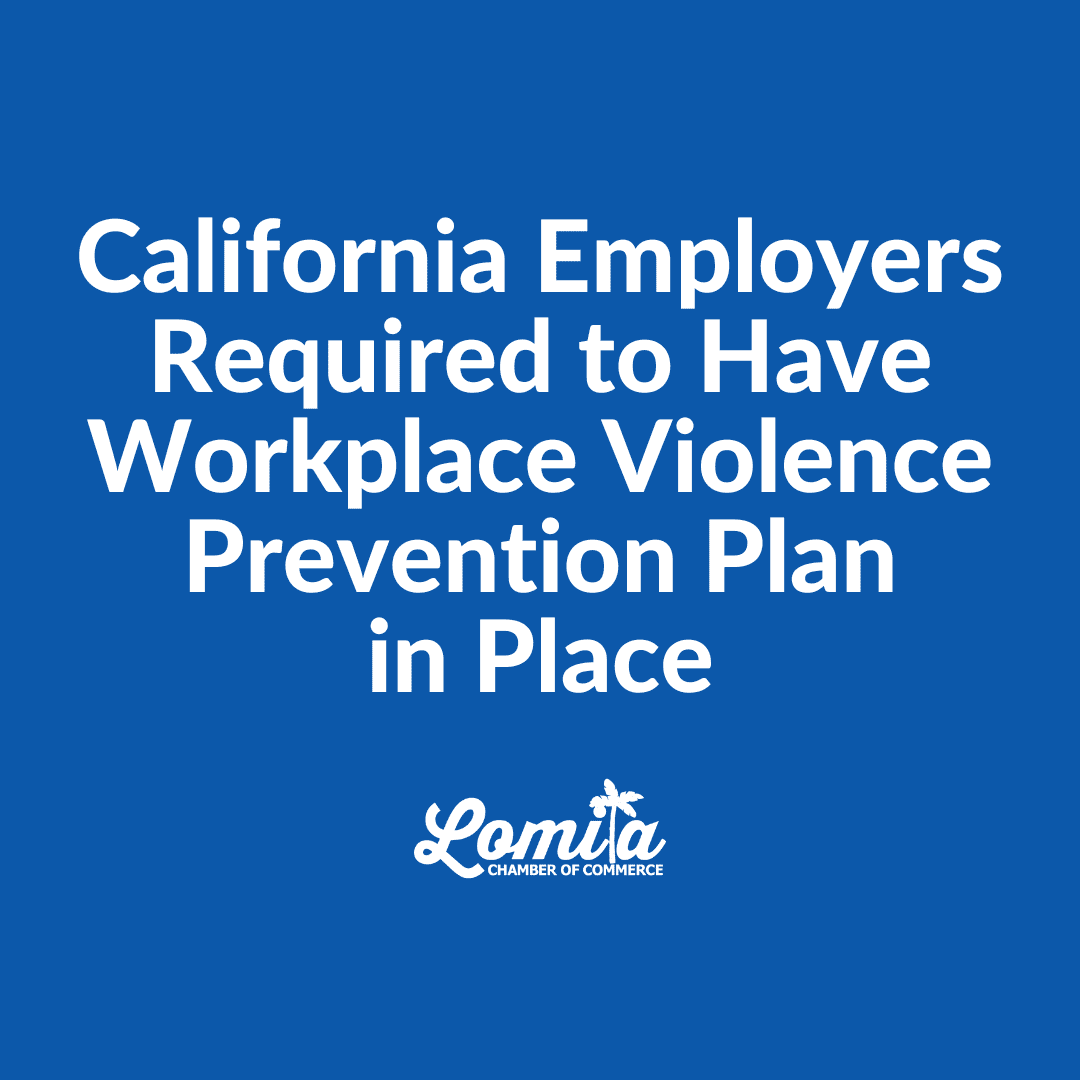
As of July 1, 2024, most California employers are required to have a Workplace Violence Prevention Plan (WVPP). The WVPP must comply with key requirements of the new law, which will be enforced by Cal/OSHA, who may issue citations and penalties for violations.
Per the employment law attorneys at Chase Law Group (a Lomita Chamber member):
“The new law defines workplace violence as “any act of violence or threat of violence that occurs in a place of employment.” Workplace violence may include the “threat or use of physical force against an employee that results in, or has a high likelihood of resulting in, injury, psychological trauma, or stress, regardless of whether the employee sustains an injury.”
Click here to read more about this new law and how it may apply to your business.
Should you have any questions regarding your company’s employment law concerns, contact an employment attorney for guidance.
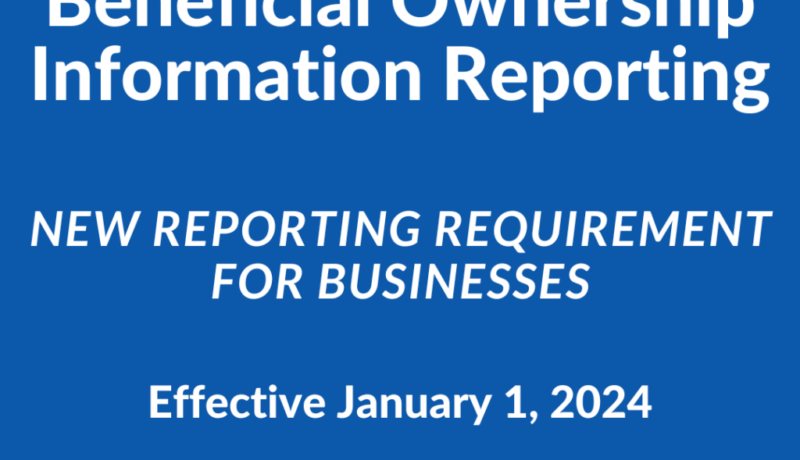
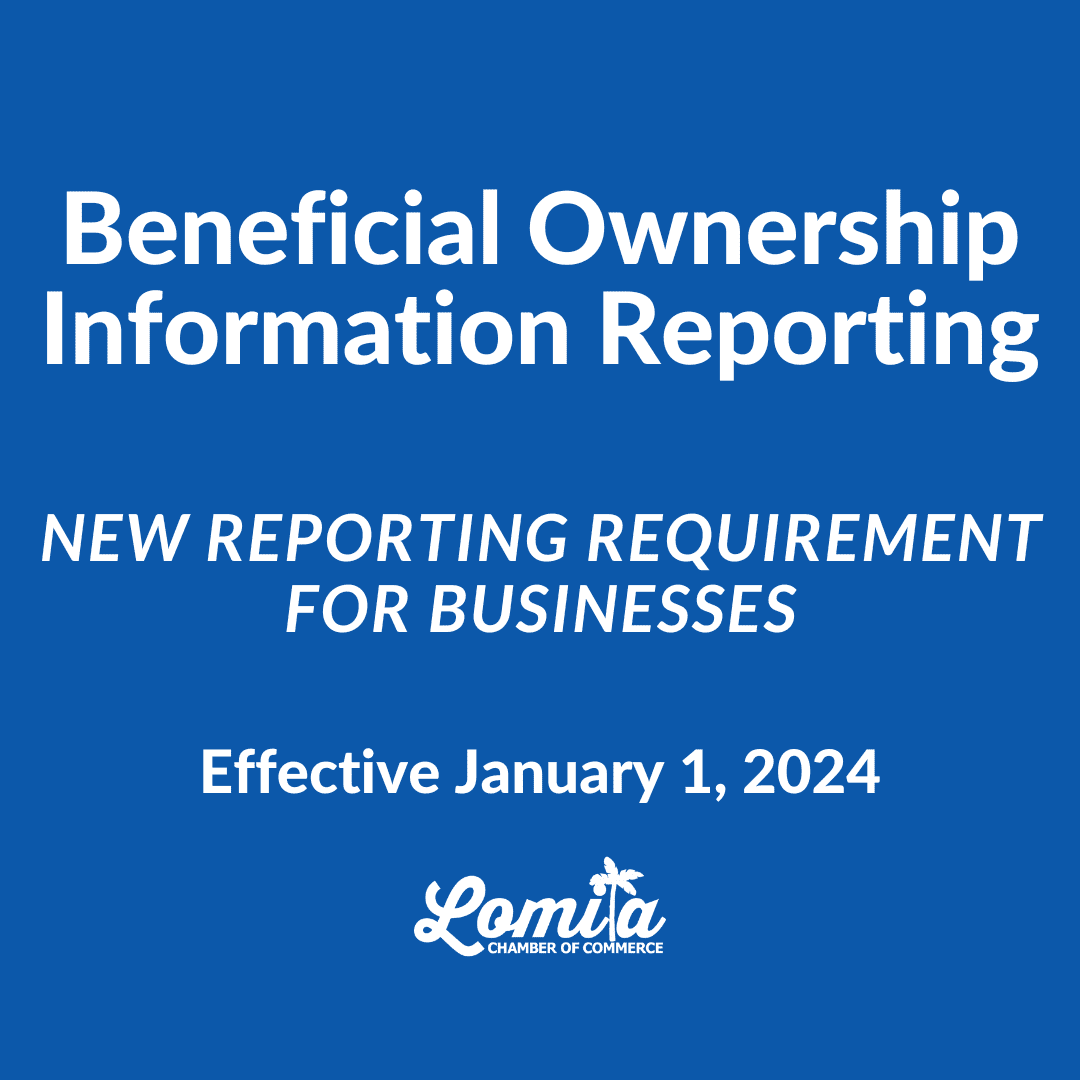
Starting on January 1 2024, your company may be required to report information about the people who own or control it to the US Treasury Department’s Financial Crimes Enforcement Network (FinCEN). FinCEN promotes national security and protects the US financial system from fraud and abuse by criminals and corrupt officials.
Many corporations, Limited Liability Companies (LLCs), and other entities created in or registered to do business in the United States will likely be required to report their beneficial ownership information to FinCEN. There are 23 categories of those entities that may be exempt including some types of larger companies, banks, credit unions, tax exempt entities registered with the IRS, and public utilities.
Per the employment law attorneys at Chase Law Group (a Lomita Chamber member):
“A reporting company will need to furnish various details, including its legal name and any trade name or Doing Business As (DBA), its address, the jurisdiction in which it was formed or first registered (depending on whether it’s a U.S. or foreign company), and its Taxpayer Identification Number (TIN).”
Click here to read more about this new rule and how it may apply to your business.
Be sure to visit the US Treasury FinCen website for resources.
Should you have any questions regarding your company’s employment law concerns, contact an employment attorney for guidance.